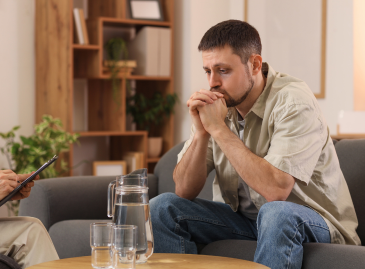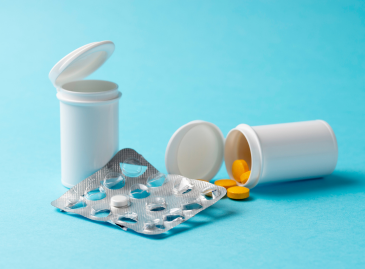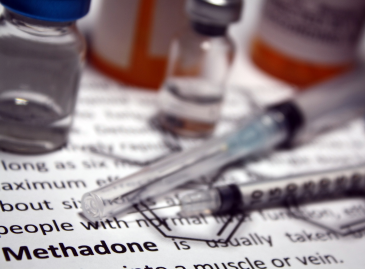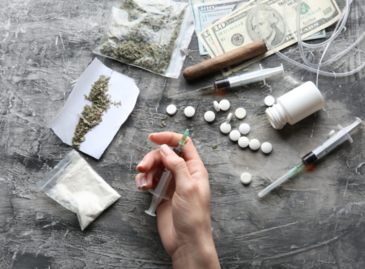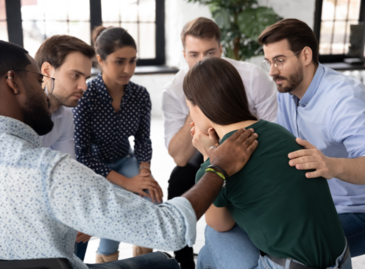Opiate Addiction Treatment in Turkey
Opiate addiction is a severe and widespread health issue that affects millions worldwide. Opioid dependence occurs when people develop a reliance on opioids, whether they are prescription painkillers or illegal drugs like heroin, leading to physical and psychological harm.
We are with you throughout the entire process
You will find some useful information that will help you prepare the necessary organization to prevent all problems and make the necessary arrangements to ensure that everything goes smoothly during your stay in Turkey.
After our with doctor answers all your questions, doctor will explain to you how the operation process will proceed.
You will have a preliminary meeting with the doctor and team we work with before the operation.
Read the document we sent you before coming to Istanbul and be sure to follow the rules.
During the recovery process, our teams will call you, ask about your condition and ask for photos.
FAQ for Opiate Addiction
You can find detailed information about the operation and organization you will have before coming to Turkey. You can contact your sales representative for any other questions you may have.
- The best way is to seek professional help through the combined use of medical detox, counseling, and medication-assisted treatment (MAT). Support from healthcare professionals is crucial for long-term recovery.
- MAT combines counseling with drugs like buprenorphine or methadone to reduce cravings and withdrawal symptoms. Patients can safely and successfully treat their addiction with this method.
- Signs include strong cravings, needing more of the drug to feel the same effect, withdrawal symptoms, neglecting responsibilities, and being unable to stop using even when trying.
- Costs vary depending on location and the type of treatment. In Turkey, treatment is often more affordable compared to many other countries. At Istanbul Med Assist, treatment plans are personalized to meet each patient's needs, so it’s best to contact them directly for specific pricing.
- The duration of treatment is different from person to person. While detox takes roughly a week, months of therapy and continued support may be necessary for long-term recovery.
This implant is a medical intervention designed to support individuals in overcoming drug addiction by delivering continuous, controlled doses of anti-craving medication. In the video below, discover how the implant works, its clinical benefits, and its role in long-term addiction treatment.
Authorized by the Ministry of Health and Tourism in Turkey
Opiate addiction is a severe and widespread health issue that affects millions worldwide. Opioid dependence occurs when people develop a reliance on opioids, whether they are prescription painkillers or illegal drugs like heroin, leading to physical and psychological harm. Opiate addiction can devastate not only the lives of those struggling with it but also their families and communities. It often results in financial difficulties, strained relationships, and declining mental and physical health. Despite these challenges, recovery is possible. With the proper treatment, including medical help, therapy, and a robust support system, treatment of opiates can be successful, and a person can regain control of their life. The cost of treatment in Turkey varies depending on the type of treatment program chosen but remains affordable compared to other countries, offering thorough options for recovery.
Istanbul Med Assist offers comprehensive services to help those struggling with opiate addiction, providing expert care, personalized treatment plans, and dedicated support to guide individuals toward recovery.
Understanding Opiate Addiction:
Opiate addiction develops when a person becomes dependent on substances derived from the opium poppy plant. These drugs are generally used for pain relief but can lead to intense physical and psychological dependence over time.
Here’s a list of common types of opiates:
Heroin:
An illegal and highly addictive opioid known for its intense euphoric effects.
Morphine:
A powerful prescription painkiller for severe pain relief, commonly used in hospitals.
Oxycodone:
A prescription opioid often found in brand names like OxyContin or Percocet.
Hydrocodone:
Commonly prescribed for pain, often combined with acetaminophen, as in Vicodin.
Codeine:
A milder opioid used in cough syrups and to treat mild to moderate pain.
Fentanyl:
An artificial opioid much more potent than morphine, typically used for severe pain management.
Methadone:
Used for both pain relief and in addiction treatment programs to reduce withdrawal symptoms.
Opium:
The raw, naturally occurring substance historically used for pain relief.
As the brain adapts to these substances, the need for higher doses (tolerance) and the experience of withdrawal symptoms when stopping (dependence) occur, making it challenging to break free from addiction. However, there are multiple treatment of opiate options available to address these issues.
Recognizing the Signs of Opiate Addiction:
Recognizing early signs of addiction is crucial for intervention. Key symptoms include:
Cravings:
A strong urge to use opiates even when not needed for pain.
Withdrawal Symptoms:
Discomfort such as nausea, anxiety, and shaking when opiates are not used.
Increased Tolerance:
Requiring more of a substance to achieve the same effect.
Neglect of Responsibilities:
Shifting priorities toward obtaining and using opiates.
Behavioural Changes:
Becoming secretive, withdrawn, and losing interest in daily activities.
Physical Appearance:
Weight loss, drowsiness, poor hygiene, and needle marks.
Treatment Options for Opiate Addiction:
Detox is the first step, where the body clears itself of opiates. Medical assistance is essential to manage withdrawal symptoms.
Medication-Assisted Treatment (MAT):
MAT uses medicines such as methadone, buprenorphine, or naltrexone to reduce cravings and withdrawal symptoms, helping stabilize brain function.
Therapy:
Cognitive Behavioural Therapy (CBT) and some other behavioural therapies are crucial for addressing the mental aspects of addiction, helping people identify triggers and avoid relapse.
Inpatient Treatment:
- 24/7 care in a controlled environment.
- Constant medical supervision and emotional support.
- It is ideal for severe addiction cases with intense withdrawal.
- Offers a safe space, free from external triggers.
- Complete focus on recovery with access to therapy and counselling.
Outpatient Treatment:
- Patients live at home while receiving treatment.
- Suitable for milder addiction cases or those with solid support.
- Regular therapy sessions and medical consultations.
- Flexible schedule for work or family responsibilities.
- Drug Implants: In addition to these traditional methods, an innovative advancement in the treatment of opiates involves the use of drug implants for addiction. These implants slowly release medications over time to help control cravings and prevent relapse.
Establishing a Strong Support Network and Relapse Prevention
Building a solid support network is vital in recovery. Family, friends, and support groups provide emotional encouragement and accountability. Aftercare is also essential. Even after completing traditional treatment, ongoing therapy and support are necessary for long-term success. By engaging in therapy sessions and making positive changes in lifestyle, individuals can reduce the risk of relapse.
Implants for drug addiction are an effective tool in relapse prevention. Since they work long-term, they provide constant support, allowing the brain to heal and reduce its dependence on opioids. Coupled with support networks and aftercare services, they offer a well-rounded approach to achieving lasting recovery.
Conclusion
Opiate addiction is a severe condition, but with the proper treatment of opiates, including detox, medication-assisted treatment, therapy, and drug implants, recovery is within reach. Early intervention, ongoing care, and a strong support network are crucial for lasting success. Implants offer an exciting new option in the battle against addiction, providing continuous help for those striving to regain control of their lives.
